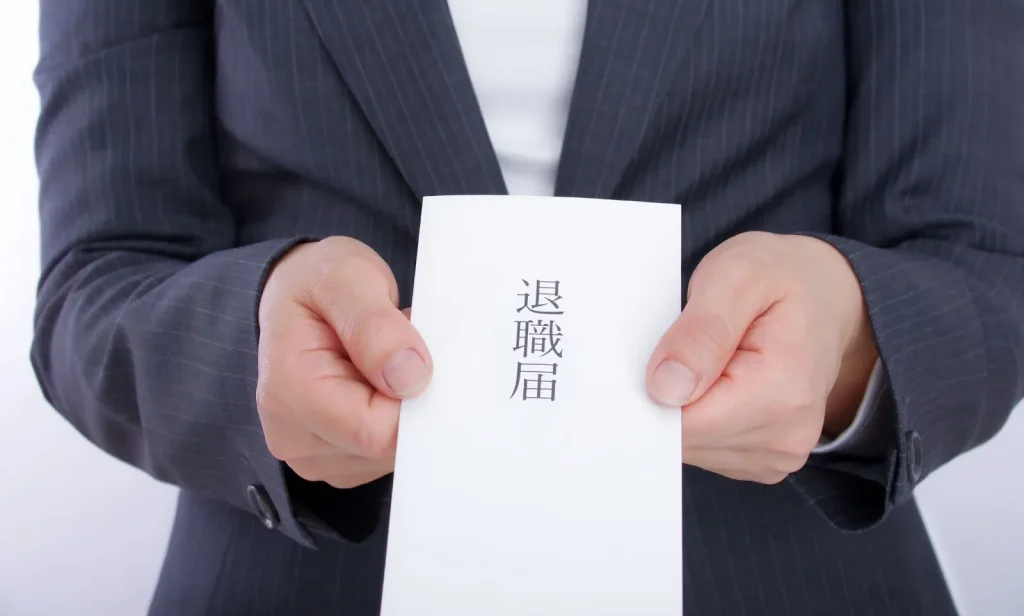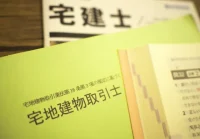What happens to the current work visa if a foreigner leaves the company? Explanation of necessary procedures!

If you are a foreigner who wants to quit your current company or change jobs, do you know what procedures you need to follow after resigning?
When a foreign national leaves a Japanese company, various procedures are required, including a change of status of residence. These procedures are sometimes complicated and time-consuming.
However, visa issues are important issues that directly affect a foreigner's life in Japan.... We must have a sense of schedule to determine what procedures are necessary according to their post-retirement plans.
If you make a mistake in the procedure, you may miss an opportunity to change jobs, and in some cases, you may lose your status of residence in Japan.
In this issue, we will explain in detail the visa-related procedures required when a foreigner resigns from a Japanese company, case by case. Check the necessary procedures according to your own situation to ensure a smooth transition and return to your home country.
▼Goandup Picks Click here for recommended articles!
- Required before studying abroad! Goandup Nihongo+, an online Japanese language learning service
- This page introduces services for foreigners who wish to study in Japan or improve their Japanese language skills to learn Japanese online.
- Goandup Salon" community for foreigners living in Japan
- We introduce an online community where foreigners living in Japan can exchange information and interact with each other to support their life in Japan.
- Goandup Study" supports foreigners who want to study in Japan.
- This section introduces study abroad support services that provide comprehensive support to foreigners who wish to study in Japan, from preparation for study abroad to living in Japan.
- Where can I buy a prepaid SIM in Japan? Recommended SIM cards for foreigners are also introduced.
- How to purchase a prepaid SIM and suitable SIM cards for foreigners.
- The Complete Guide to Pocket Wi-Fi in Japan for Foreigners!
- We introduce how to select and recommend pocket Wi-Fi products that can be used conveniently in Japan.
- The Complete Guide to Finding a Job in Japan! Finding a job, changing jobs, and part-time work for foreigners
- This site provides foreigners who want to work in Japan with comprehensive information on how to find a job, recommended job sites, and other information necessary to find a job.
What visa procedures are required after a foreigner leaves Japan?

There are two main visa-related procedures that foreign nationals should take after leaving a Japanese company.
The first is the "Notification of Institutional Affiliation" to be submitted to the Immigration Bureau within 14 days of resignation. This must be done even if you do not plan to change jobs or return to your home country.
The other is the procedure regarding residency status. The steps to be taken here will depend on your plans after you leave the company.
Here is a more detailed look at each of these procedures.
Notification of Institutional Affiliation" filed with the Immigration Bureau
When a foreigner resigns from a Japanese company, the first thing that must be done is to submit a "notification regarding the organization to which he/she belongs. This must be submitted to the Immigration Bureau within 14 days of resignation.
Procedure to be completed within 14 days after leaving the company.
The deadline for submitting the "Notification of Institutional Affiliation" is within 14 days counting from the date of resignation. Even if you are planning to return to your home country, this is a mandatory procedure.
When submitting the form, be sure to fill in all the necessary information, including the reason for resignation and future plans. Be sure to do so accurately, as submitting the form after the deadline or making a false statement will be punished.
Failure to submit this notification may be grounds for revocation of your status of residence or may adversely affect your next visa renewal or change. For smooth residency management, we recommend that you list this on your top list of post-retirement procedures.
There are three ways to submit a report: bring it to the counter, mail it, or submit an online application.
You can choose to submit your notification in person at the immigration office, by mail, or by online application. Of the three, online application is the most convenient method.
For online applications, use the Immigration Bureau's Electronic Filing System. This system allows online notification 24 hours a day, 7 days a week, 365 days a year, eliminating the need to visit the immigration office. Furthermore, the major advantage of this system is that you can check the history and processing status of your notification. Although user information registration is required the first time you use the system, you do not need to submit any documents attesting to the matters to be reported.
To bring the form to the counter, go to the nearest regional immigration office, present your resident card, and submit the form. Reception hours may be set for certain days and hours depending on the procedure, so it is recommended to check in advance. Any form is acceptable as long as the items to be reported are included, but it is convenient to use a reference form according to the reason for the report.
When sending by mail, enclose the notification form and a copy of the resident card, write "Notification enclosed" or "NOTIFICATION ENCLOSED" in red on the front of the envelope, and send it to the Notification Reception Section, Residency Investigation Department, Tokyo Immigration and Residence Management Bureau. Since there is no notification of receipt of notification by mail, it is better to send the notification by a method that leaves a record of delivery.
Visas that vary depending on your post-retirement plans.

There are three main paths that a foreigner should take after resigning from a Japanese company. One is to return to your home country, the other is to find a new job, and the third is to continue job search. Since the visa-related procedures required differ in each case, it is important to take the appropriate action according to your own schedule.
】 visa is not required if you plan to return to your country in 【.
If you plan to return to your home country immediately after resigning, you are not required to change your status of residence. However, you must submit the "Notification of Affiliation" form.
Various procedures will occur before you return to your home country, such as moving out of your residence at the municipal office, canceling utility bills, and moving out of your residence. Please plan ahead and complete all procedures before leaving Japan.
【Change of status of residence for 】 visa if you have already found a new job
If you have decided to change your job to another company after resigning, you are required to change your status of residence in principle.
For example, a person who has been working under the status of residence of "Engineer/Humanities/International Services" or "Intra-company Transferee" needs to apply for another Certificate of Eligibility even if he/she takes a position in the same line of work at a new company.
On the other hand, if you can continue to work under the same status of residence after changing jobs, you do not need to change your status of residence. However, you are required to report a change in the organization to which you belong.
Procedures for change of status of residence are handled at the regional immigration office that has jurisdiction over your current place of residence. Please apply well in advance after you have all the necessary documents.
Please note that the procedure for change of status of residence is complicated and time-consuming. If you are unsure about how to prepare and submit the documents, we recommend that you contact a visa consultant.
Visa consultants provide services for applications for change of status of residence and will handle the entire process on your behalf, from preparation of the necessary documents to application to the Immigration Bureau. Fees vary from consultant to consultant, but are generally based on the type of application and the amount of documentation required.
By using a visa consultant, you can focus on your new job with peace of mind, knowing that the complicated procedures will be taken care of by experts. If you are considering hiring a visa consultant, please also refer to the following article.
▶︎ Explanation of the process and fees when a visa consultant is hired to apply for a visa.
【 If you are planning to seek a job, you do not need to temporarily return to your country, but be careful about visas.
If you have not decided on a new job and plan to continue your job search, you do not need to return to Japan temporarily, but you should be very careful in handling your visa.
Must change jobs within 3 months.
If a foreigner with a work visa resigns, he/she must, in principle, be reemployed within three months; if he/she remains unemployed for more than three months, the possibility of revocation of status of residence increases.
However, reemployment within three months is not an absolute requirement. If there is a legitimate reason, such as not being able to find a new job despite diligent job search efforts, the revocation may be waived.
However, you do not want to easily exceed three months. Focus on your job search with the goal of finding new employment as soon as possible.
Subject to "revocation of status of residence" after a three-month period.
Again, if a work visa holder remains unemployed for more than three months, the risk of revocation of status of residence increases.
However, there are a few exceptions to this three-month rule. Cases in which the resignation is due to reasons that are not the fault of the employee, such as company bankruptcy or dismissal, may be exempt from the revocation.
In addition, if you are found to be actively seeking a job, you may be exempted from the revocation. It is important to keep good records of your job search activities and be prepared to explain them to the immigration authorities when they ask you about your situation.
In any case, you do not want to be unemployed for longer than three months, so keep trying as hard as you can to find new employment.
Can foreigners receive unemployment benefits?

For foreign nationals working in Japan, one of their concerns is eligibility for unemployment benefits. As it turns out, if certain conditions are met, foreigners can receive unemployment benefits in the same way as Japanese nationals.
Unemployment allowance is an important system to support people who have lost their jobs until they find new employment. By making effective use of this system, foreign nationals will be able to concentrate on their re-employment activities. However, there are a few points to note, so please check carefully.
Conditional and can be received until the end of the term.
To receive unemployment benefits, the following conditions must be met
- Actively seeking employment and willing to re-enter the workforce for at least 12 months of employment insurance coverage
In principle, foreign nationals who have been enrolled in employment insurance for at least one year at the company they worked for before resigning are eligible to receive unemployment benefits. However, they must be willing to actively seek employment on their own and re-enter the workforce.
In the case of resignation due to reasons other than the resignation of the resignee, such as company bankruptcy or dismissal, the resignee is eligible to receive benefits as long as he/she has been enrolled in employment insurance for at least six months.
The amount and duration of unemployment benefits vary depending on factors such as age, length of employment insurance coverage, and reason for resignation. Procedures are to be completed at the Hello Work office that has jurisdiction over your address. Check the required documents and complete the procedures as soon as possible.
Hello Work is not merely a place to apply for unemployment benefits; it also provides employment assistance to foreign residents. Various services are available, such as job counseling for foreign residents and provision of information necessary for employment. To learn more about Hello Work, please read the following article.
▶︎ What is Hello Work in Japan for foreigners? We explain in detail about job openings and employment opportunities |.
Extension of status of residence is not possible.
The most important point to keep in mind when receiving unemployment benefits for foreign nationals is the treatment of their status of residence.
In most cases, if the period of stay expires during the period of receipt of unemployment benefits, the status of residence cannot be renewed. When the status of residence expires, the unemployment allowance payments will be terminated, even if there is still time left to receive the allowance.
In other words, the period of unemployment benefit receipt does not necessarily equal the period of stay. If your period of stay is about to expire, you should aim to find new employment as soon as possible or consider returning to your home country temporarily.
It may be possible to find a job by changing your status of residence to "Temporary Visitor".
If a person who has been working on a work visa such as "Technical/Humanities/International Services" is unable to find new employment by the expiration date of his/her visa, what will happen to his/her status of residence?
One option is to change your status of residence to "Temporary Visitor". This may allow you to continue to seek employment in Japan.
However, whether or not the change of status to "Temporary Visitor" will be approved is a case-by-case basis. Since it is largely up to the immigration authorities, it cannot be said with certainty.
It is recommended that you consult with the Immigration Bureau in advance to confirm whether or not a change of status to "Temporary Visitor" is possible. In addition, when applying for a change of status of residence, you should attach convincing documents such as a plan for job search activities.
Useful information and support for living in Japan

Living in Japan is fascinating, but it is not uncommon to face many challenges due to language barriers and cultural differences. For example, you may encounter difficulties in all aspects of life, from using keigo (honorific expressions) in everyday and business situations, to difficulties in finding housing, using public services, preparing for the JLPT exam, and even meeting new friends and loved ones.
At such times, Goandup Salon will be your reliable partner!
Our community provides support and information to help foreign residents in Japan to make their life in Japan richer and more comfortable.
- Japanese Language Studywill meet the needs of all levels, from daily conversation to the use of keigo in business situations, to efficient Japanese language learning methods and preparation for the JLPT exam.
- livingaspect of the program provides concrete advice and information on how to establish a foundation for living in Japan, including explanations of Japanese culture and rules, finding housing, and how to contract public services and living infrastructure.
- Jobs & CareersRegarding the "what if" section, we can help you find a job, change jobs, and understand Japanese business etiquette and workplace culture, which are key to a successful career in the workplace.
- Travel & Dining Guidewill introduce you to hidden gems in Japan, must-try gourmet information, and other unique local attractions to help you experience Japan more deeply.
If you have any questions or concerns about life in Japan, Goandup Salon is here to help you! We will wholeheartedly support you to make your life in Japan smoother and more enjoyable.
For more information, click here ▼
summary
In this issue, we explained the visa-related procedures required when a foreigner resigns from a Japanese company.
After resigning, various procedures will occur, including notification to the Immigration Bureau, change of status of residence, and receipt of unemployment benefits. It is important to take appropriate action according to your own schedule.
In particular, you should pay close attention to how your status of residence is handled. While keeping an eye on your schedule for finding new employment and returning to your home country, be sure to avoid expiration of your visa status.
Visa issues are always a concern for non-Japanese nationals who wish to continue working in Japan. We recommend that you prepare in advance and seek professional advice when changing jobs or resigning.
If you acquire the right knowledge and build your career systematically, you will surely have a fulfilling life in Japan.
We hope that more and more foreigners will be active in Japan in the future.






